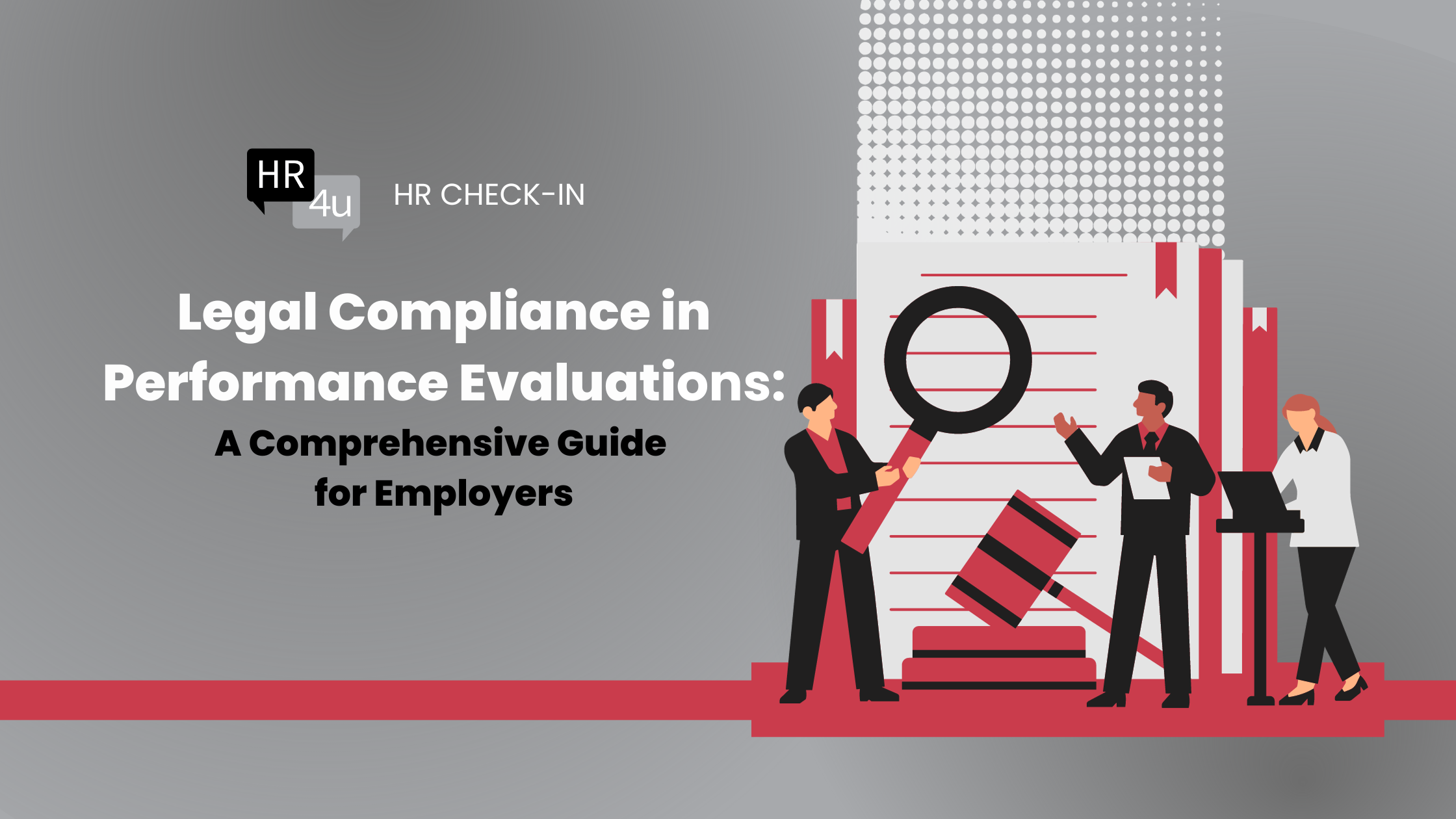A Comprehensive Guide for Employers
Performance reviews are a cornerstone of effective talent management, providing employers with an opportunity to evaluate employee contributions, set goals, and foster professional development. However, conducting these reviews comes with its own set of legal considerations. HR plays a pivotal role in ensuring that performance management processes align with labour laws and regulations, while also mitigating the risk of discrimination or bias. In today’s edition of HR Check In, we’ll explore key considerations for employers to conduct effective performance reviews while staying compliant with Ontario’s legal framework.
Comprehending Ontario Employment Standards:
Before delving into the intricacies of performance evaluations, it’s essential for employers to have a clear understanding of the labour laws and regulations that govern employment relationships. Ontario’s Employment Standards Act lays out the minimum employment standards that employers must adhere to. Familiarize yourself with regulations regarding working hours, breaks, and termination provisions to ensure that performance reviews are conducted within the framework of these standards. Be aware of any changes to employment laws and adjust your performance management processes accordingly.
Establishing Clear Performance Standards and Criteria:
To ensure legal compliance, it’s imperative for employers to establish clear and objective performance standards and criteria. Vague or subjective evaluation metrics can lead to misunderstandings and increase the risk of legal challenges. Clearly communicate expectations, job responsibilities, and performance indicators to employees, providing a solid foundation for fair and unbiased assessments.
Ensuring Equal Treatment:
Ontario’s Human Rights Code prohibits discrimination in employment on various grounds, including race, gender, and disability. During performance reviews, it’s imperative to ensure equal treatment for all employees. Avoid making decisions based on protected characteristics, and instead, focus on objective performance criteria. Consistency is key to mitigating the risk of discrimination claims.
Training Managers on Unbiased Evaluation Techniques:
Managers play a pivotal role in the performance evaluation process. Conduct training sessions for supervisors and managers to equip them with the skills needed to conduct unbiased evaluations. Emphasize the importance of focusing on objective performance metrics rather than personal opinions, and provide guidance on avoiding unconscious biases that may lead to discriminatory practices.
Providing Constructive Feedback:
Offering constructive feedback is essential for employee development, but it’s equally important to do so in a manner that aligns with employment laws. Clearly communicate expectations, acknowledge achievements, and address areas for improvement using language that is objective and non-discriminatory. Document feedback appropriately, emphasizing specific performance-related concerns rather than personal opinions.
Documentation is Key:
Thorough and consistent documentation is crucial in establishing the basis for performance evaluations. HR should ensure that all performance-related information, including feedback, improvement plans, and disciplinary actions, is accurately recorded and stored securely. This documentation not only serves as a valuable resource for performance discussions but also acts as a legal safeguard in case of disputes.
Handling Poor Performance and Terminations:
When addressing poor performance, employers in Ontario must adhere to fair and transparent procedures. Clearly communicate expectations, provide employees with the opportunity to improve, and document performance issues and improvement plans. If termination becomes necessary, ensure compliance with notice or severance requirements under employment standards and common law principles.
Confidentiality and Privacy:
Respect employee privacy rights during performance reviews. Discuss sensitive information in a private setting, and limit access to performance-related documentation to authorized personnel. Be transparent with employees about the purpose and content of performance reviews, and obtain necessary consent for any data collection or sharing that goes beyond standard employment practices.
Conducting Regular Training on Anti-Discrimination Policies:
Keep employees informed about the organization’s commitment to diversity and inclusion. Regularly conduct training sessions on anti-discrimination policies, emphasizing the importance of a fair and unbiased performance evaluation process. Encourage employees to report any concerns or instances of perceived bias, and implement a transparent and confidential process for handling such reports.
Achieving legal compliance in performance evaluations is not only a legal obligation but also essential for fostering a positive work environment. Effectively navigating legal considerations in Ontario while conducting performance reviews requires a proactive approach from HR. By staying informed about employment standards, ensuring equal treatment, providing constructive feedback, handling poor performance judiciously, respecting privacy, and maintaining thorough records, employers can create a performance management process that not only supports organizational goals but also aligns seamlessly with the legal framework in Ontario. Striking this balance contributes to a positive work environment, employee satisfaction, and legal compliance.
